Introduction
Everyday life becomes rationally organized, neatly subdivided and programmed to fit into a controlled timetable. Our infrastructure reinforces the rigidity of such schedules, creating an urban experience that is unfriendly for alternative lifestyles. Designing future environment with the aim to achieve time autonomy will allow cities to embrace and exemplify diversity in lifestyles, giving back the control to individuals, leading more satisfaction in life. Thus, this thesis project seeks to investigate how future urban development and architecture can be redesigned to provide a more dynamic and flexible spatial experience, focusing on how time can manifest and be experienced in the physical space.
Issues
Although the 9-5 work schedule is something we have constructed collectively as a society, due to change in employment pattern and growing demand for flexi-work, in the near future, there will be greater diversity in lifestyles.
Those who have atypical schedules now are very much limited by the current supply of services. i.e., limited range of activities outside of their usual working hours, the lack of unconducive work environment at home. Our current operational hours of infrastructure and facilities are mainly serving those with regular work schedule. Undersubscribed spaces during off peak hours could be better utilized to serve those with alternative lifestyles. Can spaces and programmes be shared across time to respond to the temporal needs of city dwellers?
Design Exploration
As the brief of the studio calls, a conceptual masterplan and subsequently a precinct plan are developed for the further exploration of time-share architecture. As land-based mobility remains rather limited, water as a medium has the potential to transport size of a city block with relative ease, the design proposal paints the picture of a potential water settlement with an ever-changing character. Time-share modules of varying sizes and functions are designed to activate static facilities to be multifunctional at different time. Modules are shared either on demand or on a rotational basis, giving city dwellers the autonomy of where their facilities are and how these facilities are used.
Future Outcome
The outcome of such architecture is that in future, residents are able to work while travelling, they are given the flexibility of the nomadic lifestyle, forming families with other like-minded individuals. They will get to enjoy the convenience of services coming to them, and their spatial experience to exhibit a changing character over time.

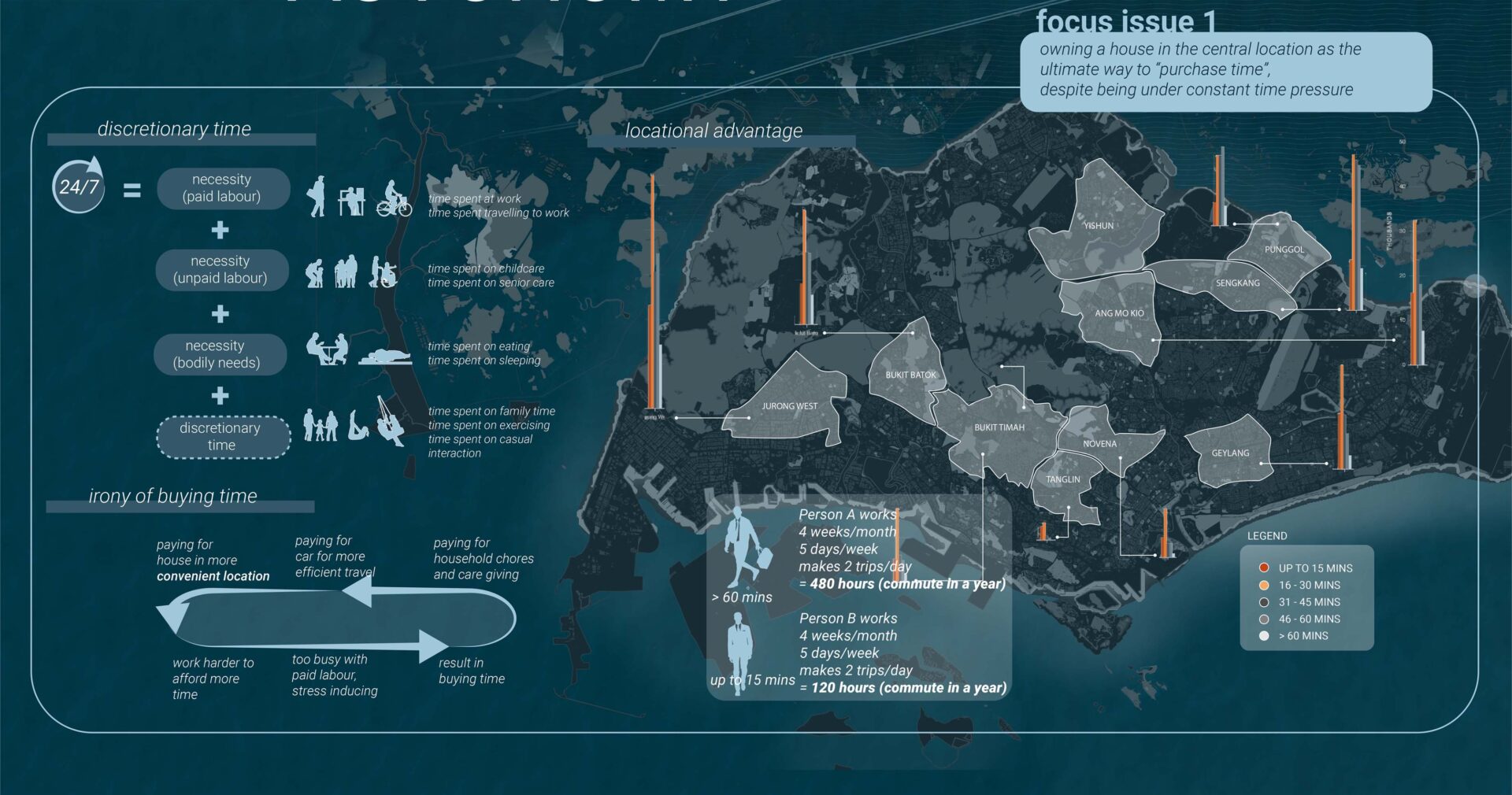
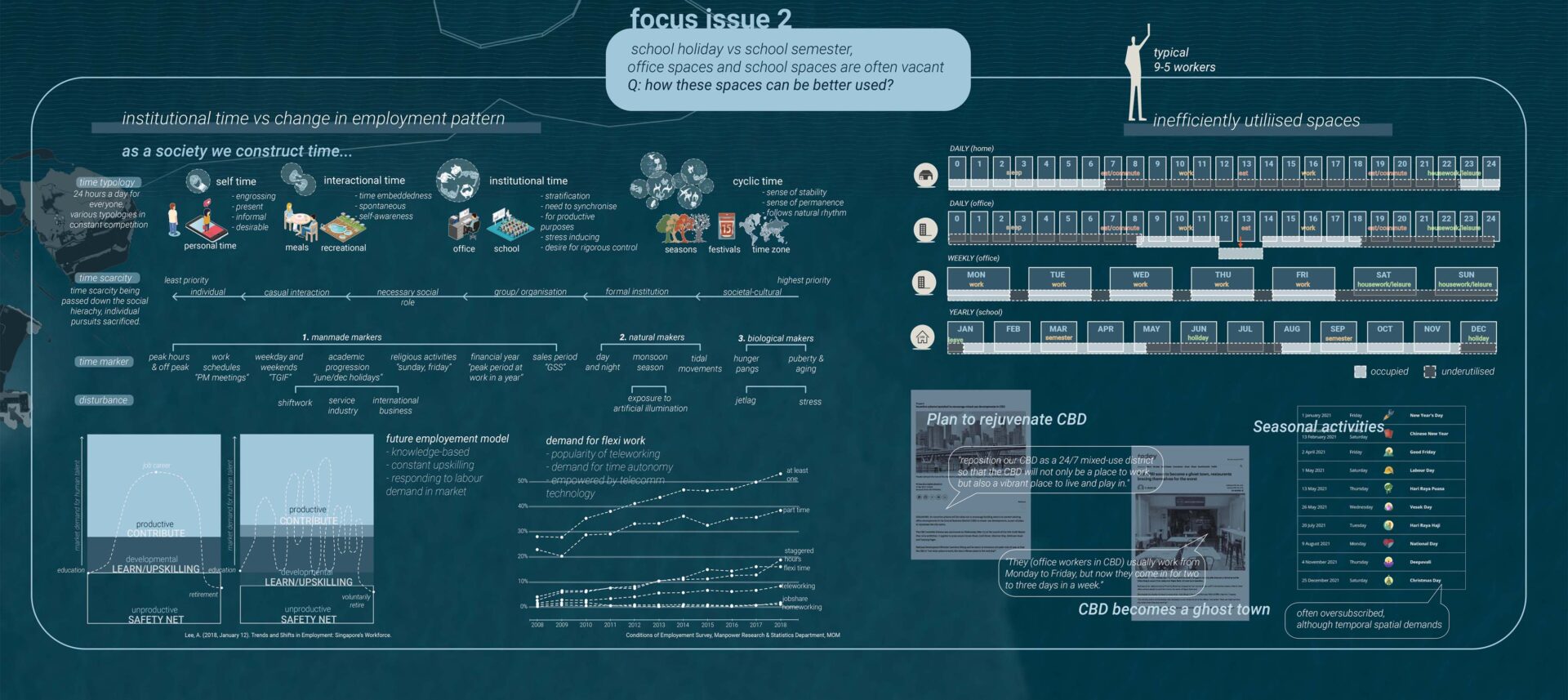
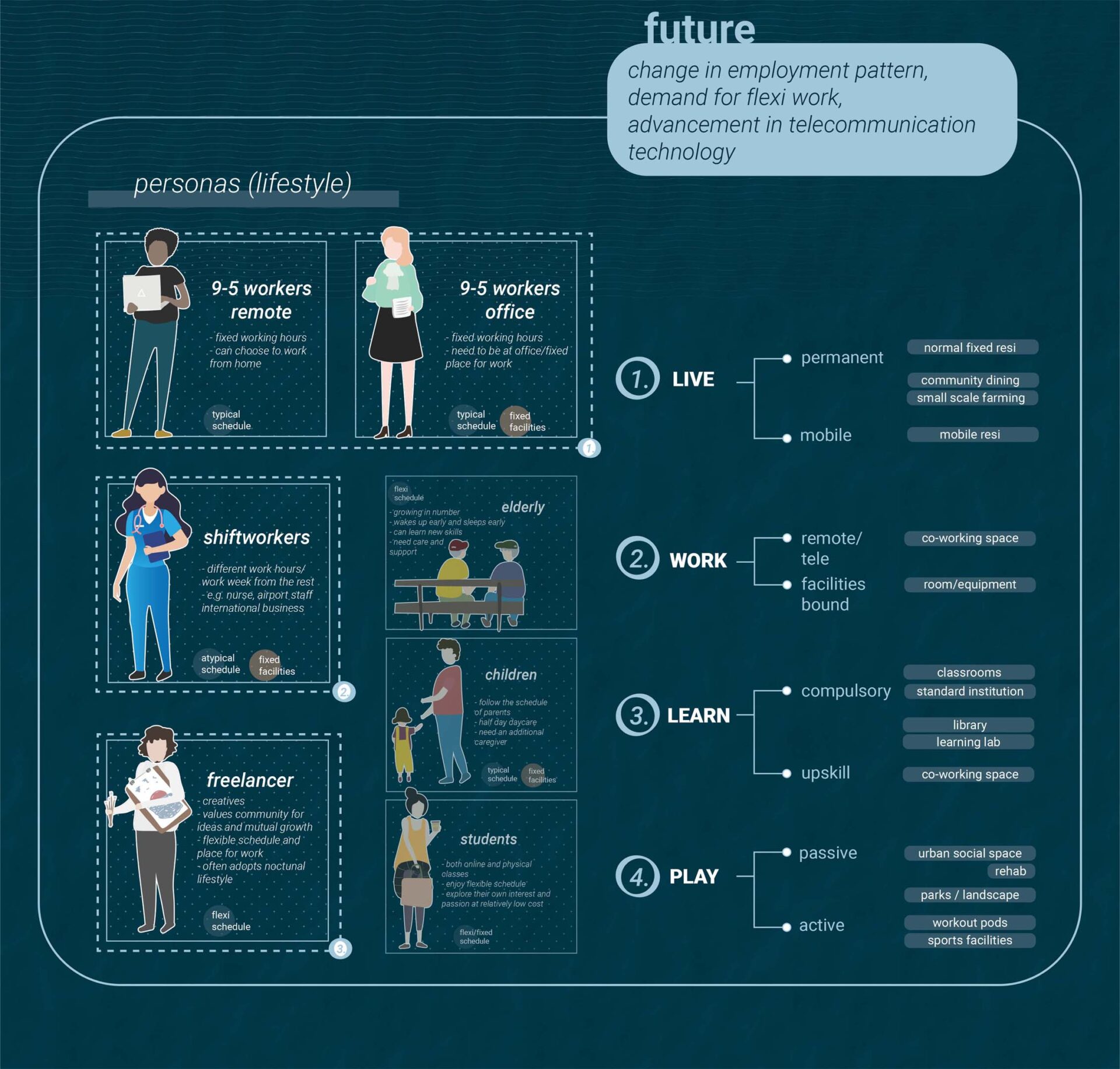
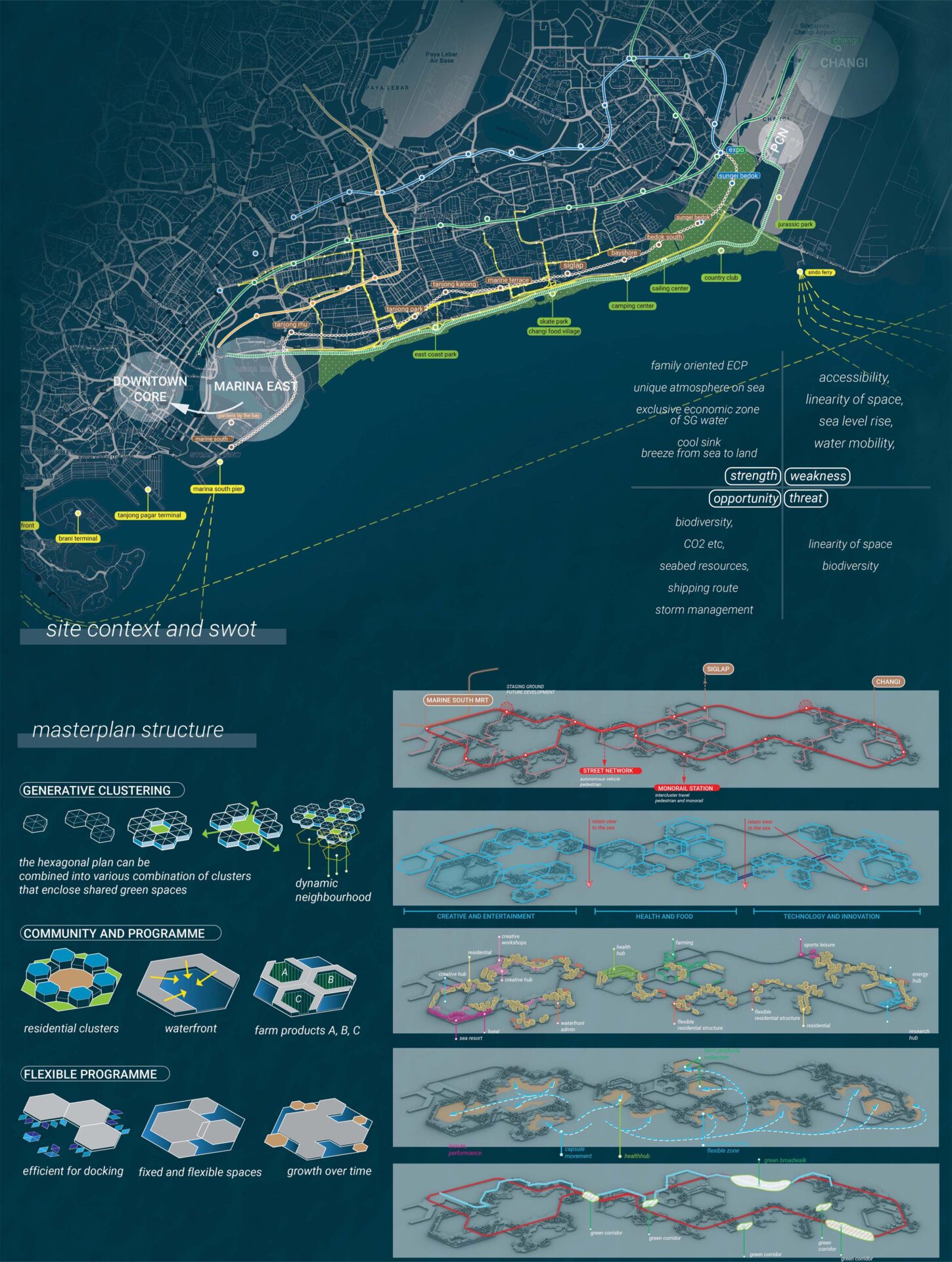

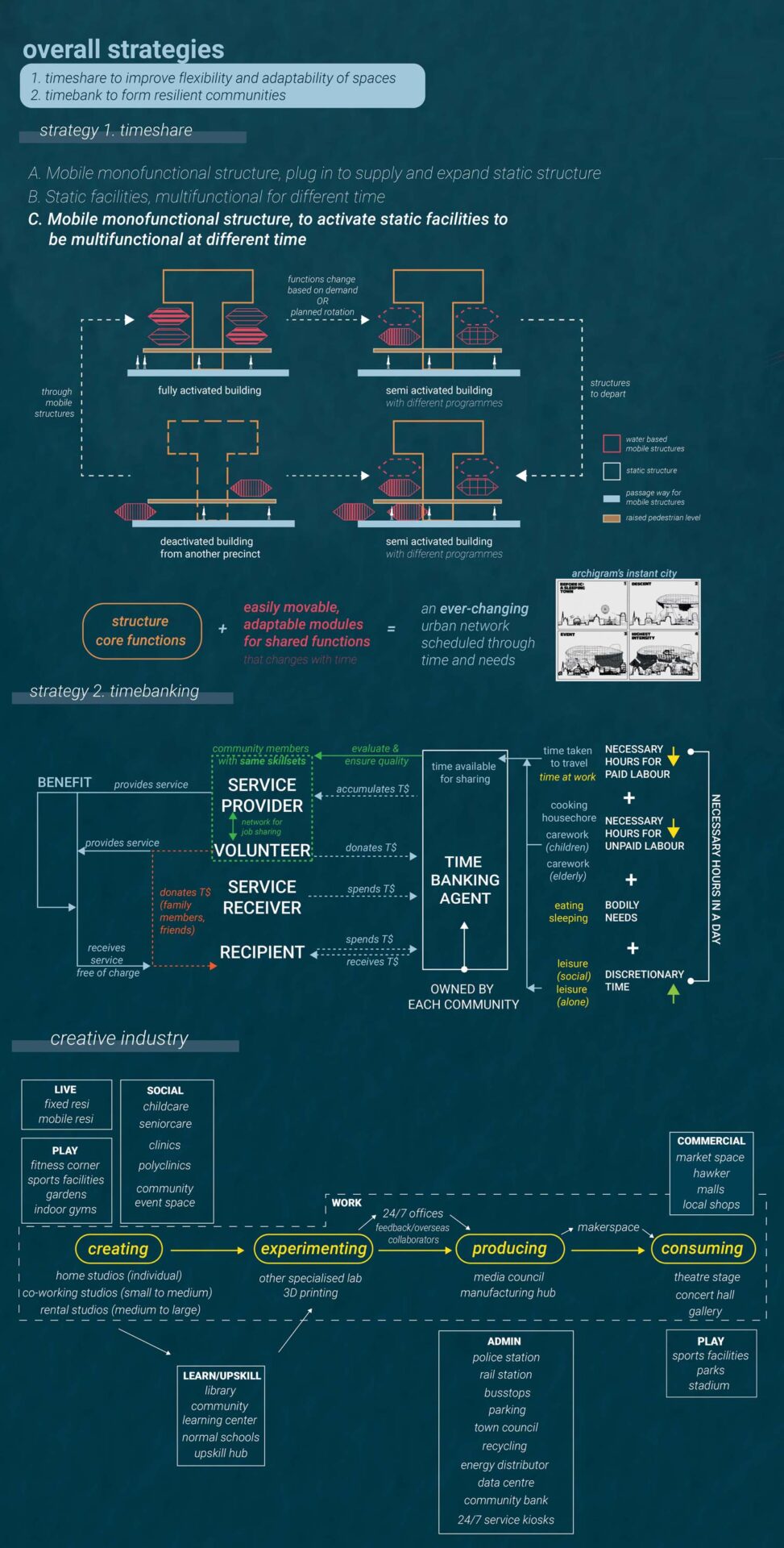
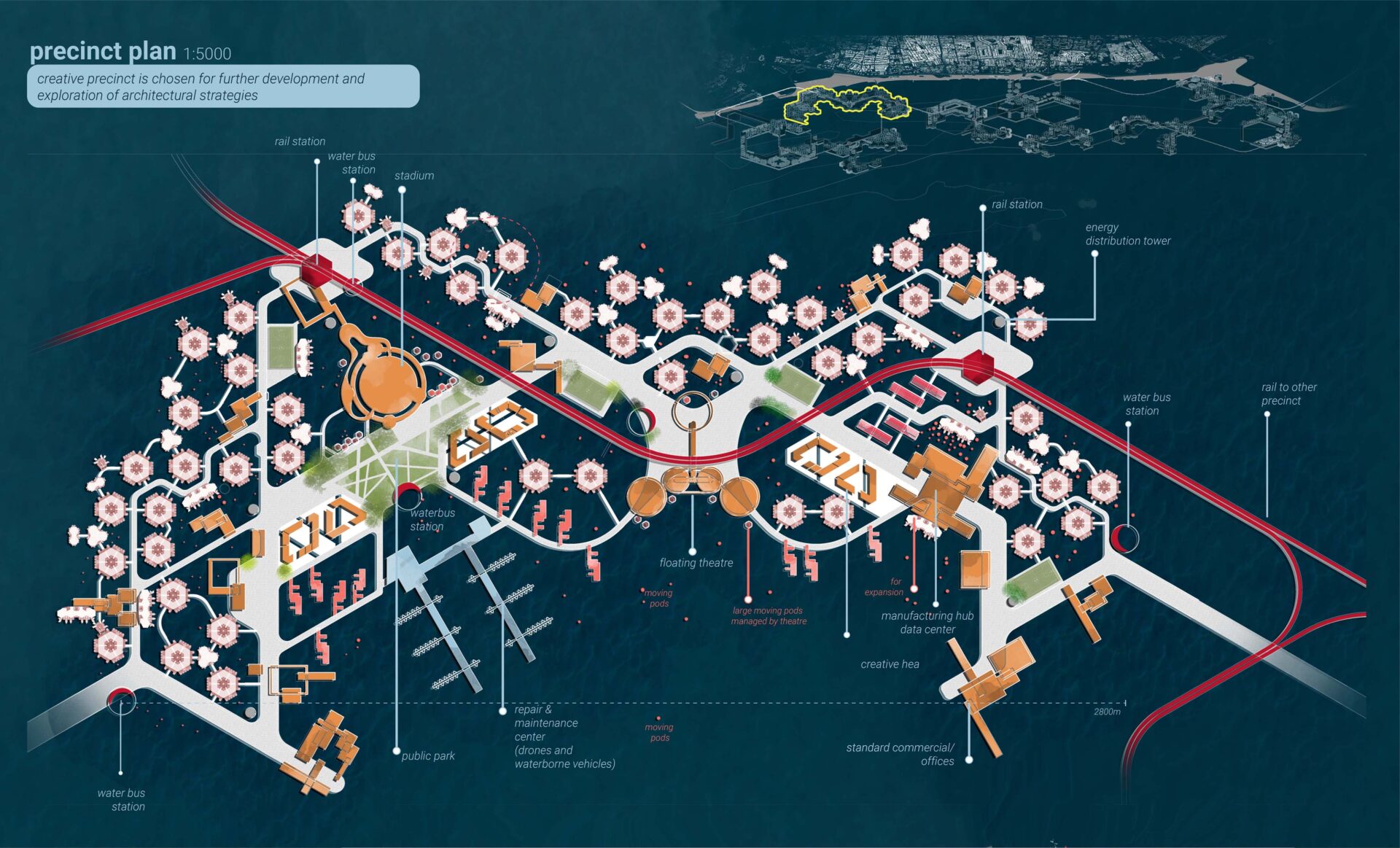
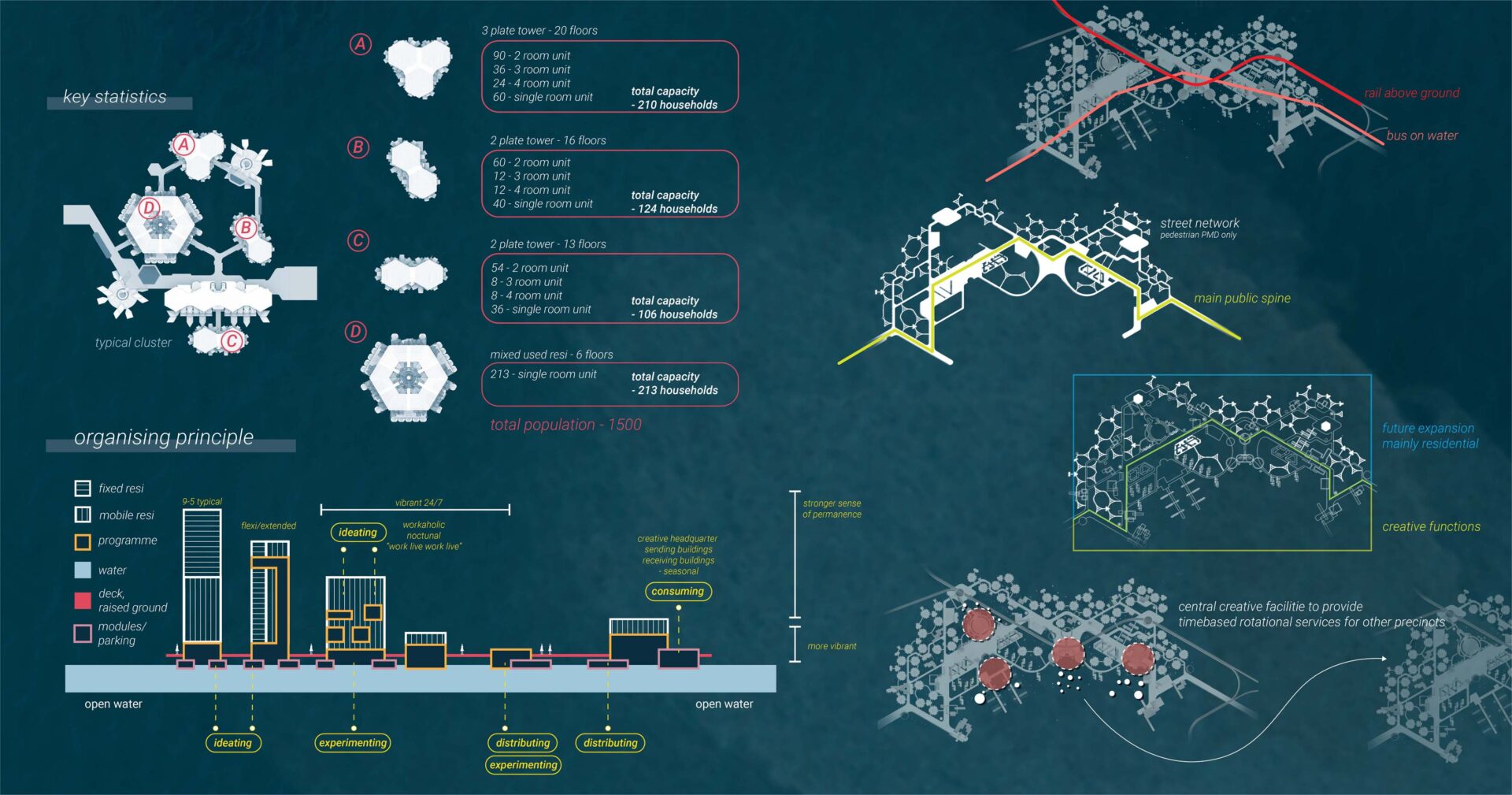

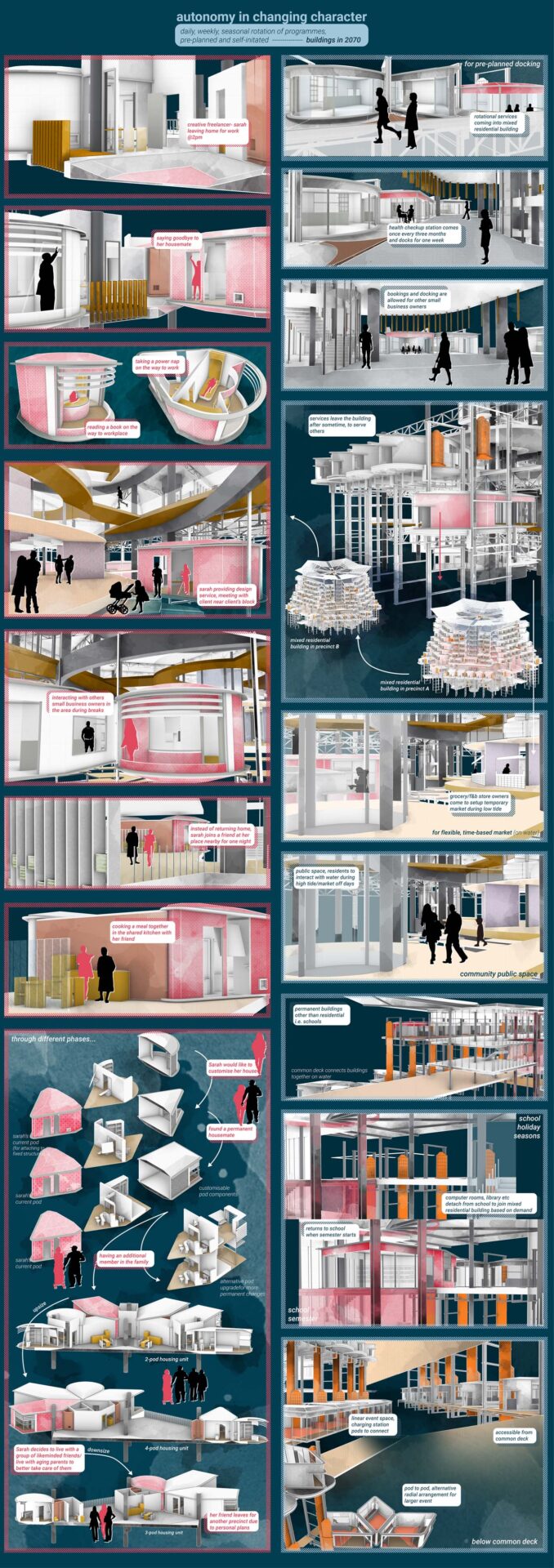
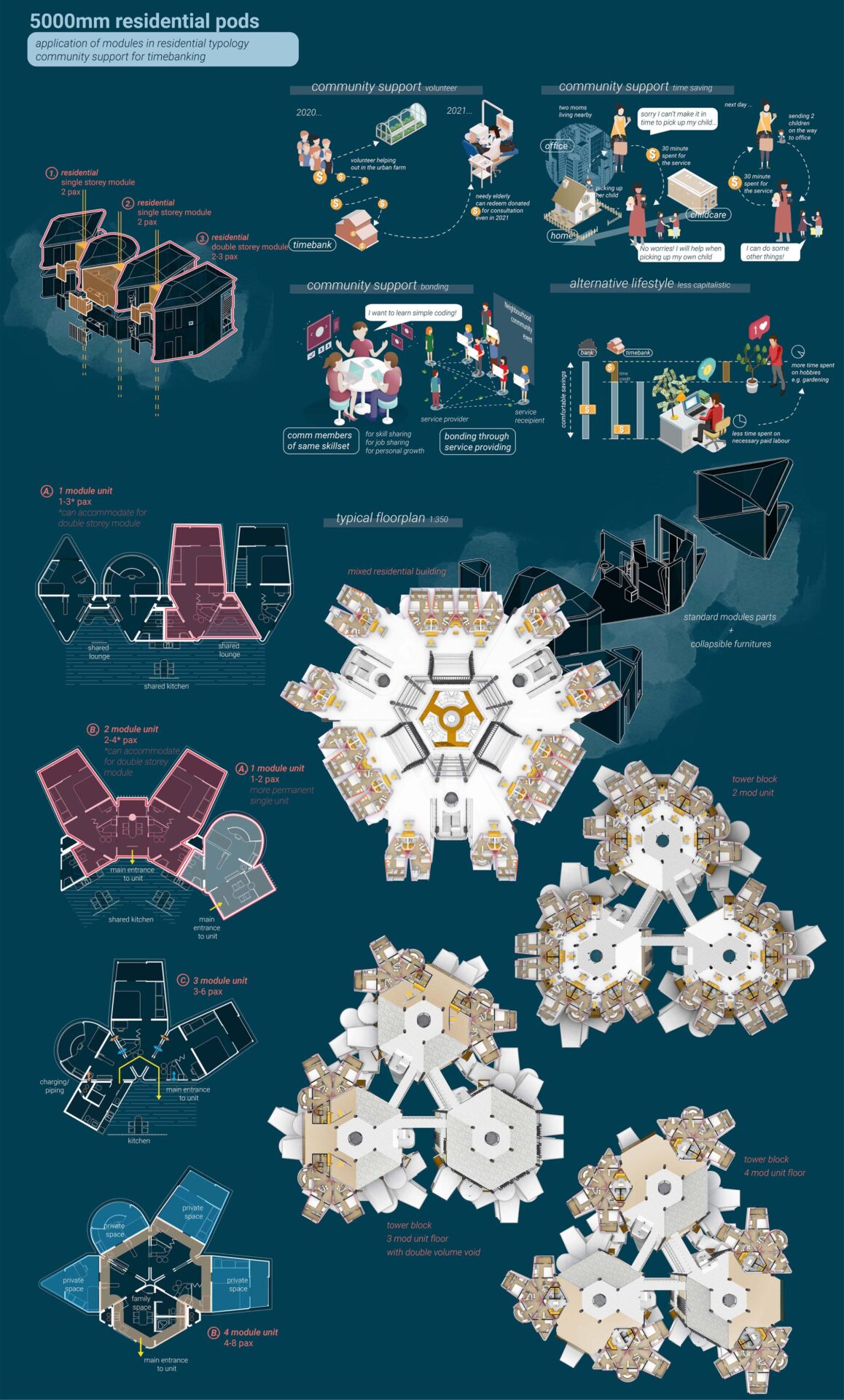
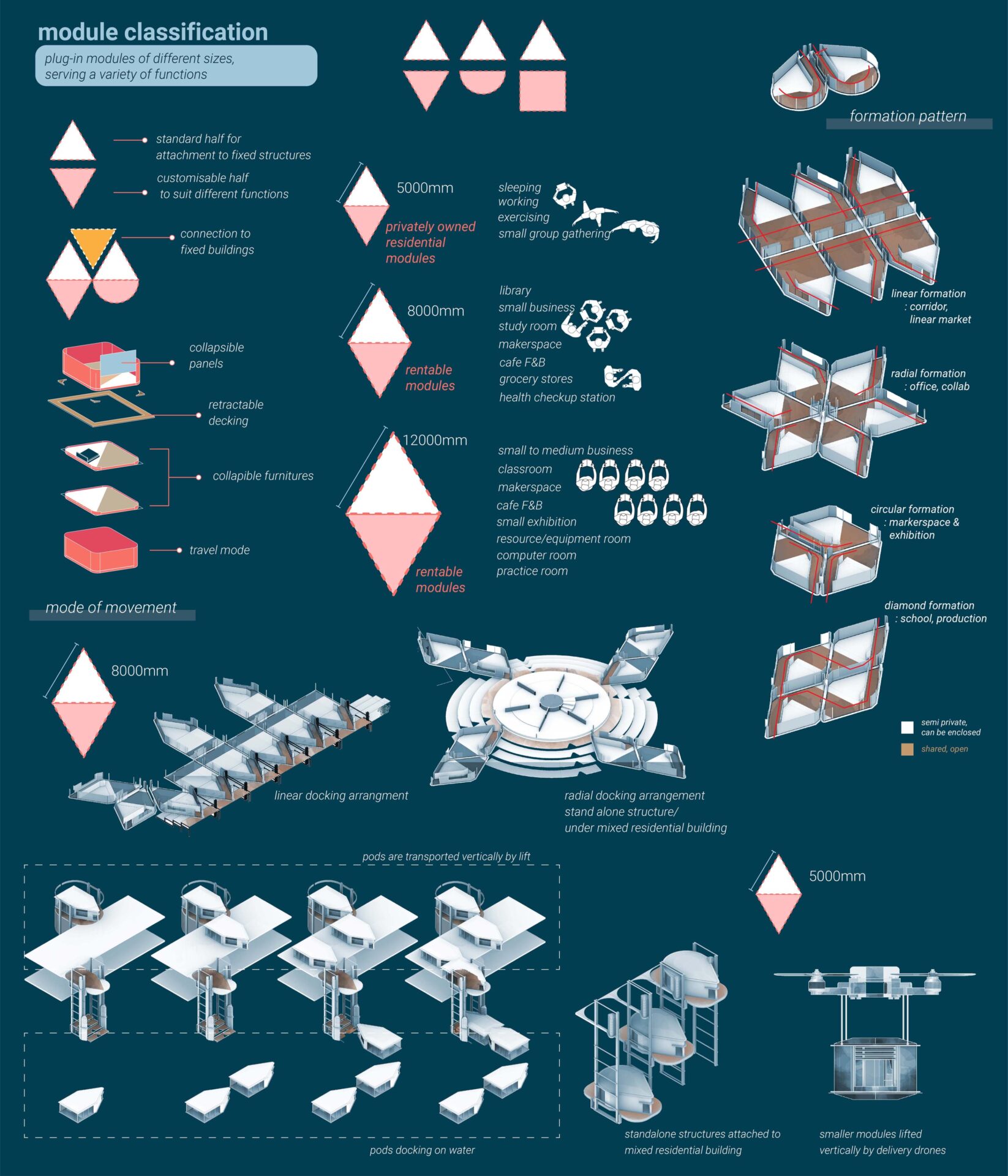
Supervisor's comments:
Time is an elusive subject to understand even on its own accord. Taking on the challenge of expressing the space-time continuum through architecture, this project illuminates and bridges the threshold of tangibility. Such an investigation necessarily faces the immense task of framing a construct where the gradient of time is given a material presence not location-fixated but rather movement-enabled. Architecture is thus recast to forsake its perceived immutability by being imbued with transiency and transformability. The fluidity of architecture on water is pertinent to this idea and recalls Singapore’s legacy as a historical seafaring community and a modern maritime port.
- Assoc. Prof. Fung John Chye